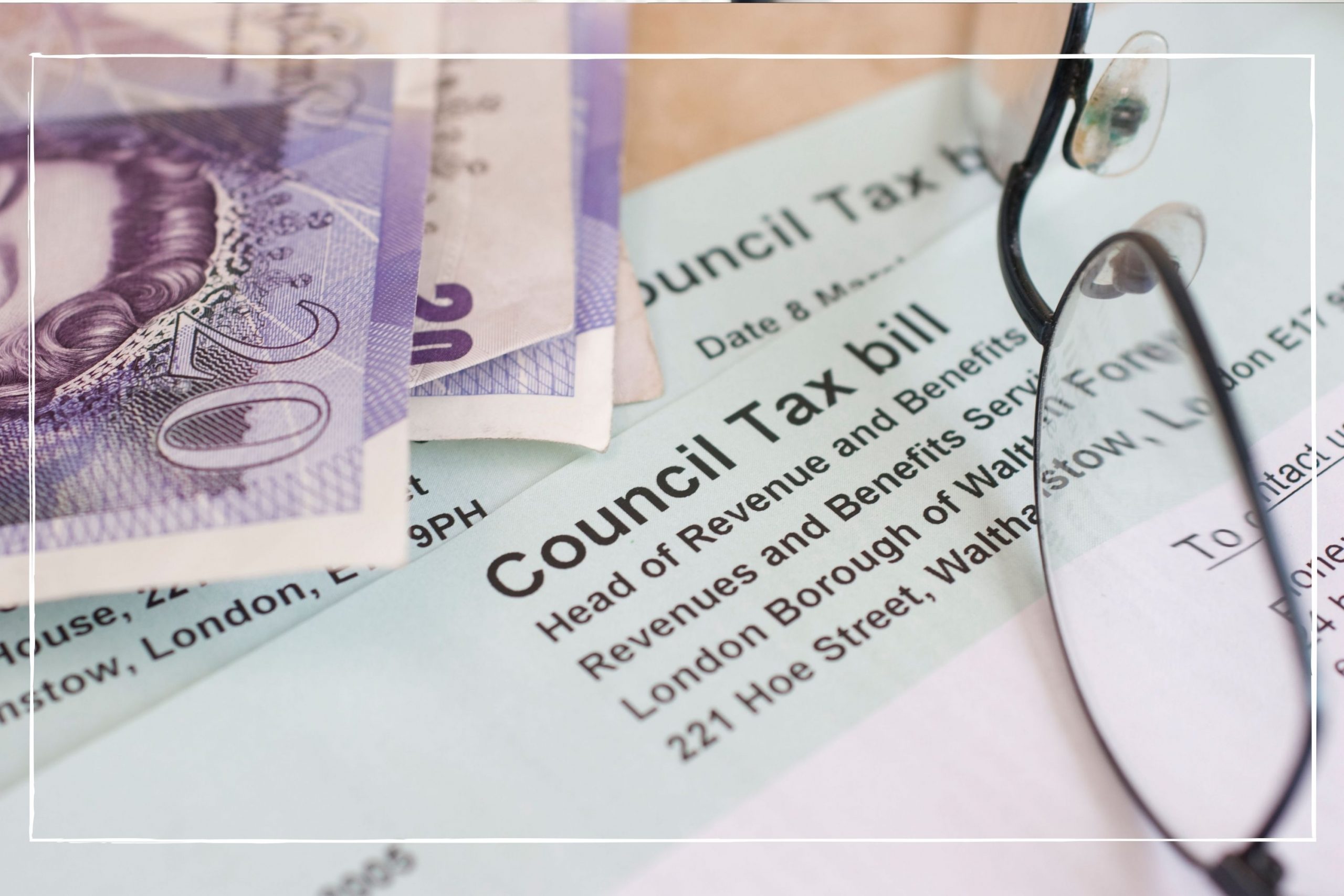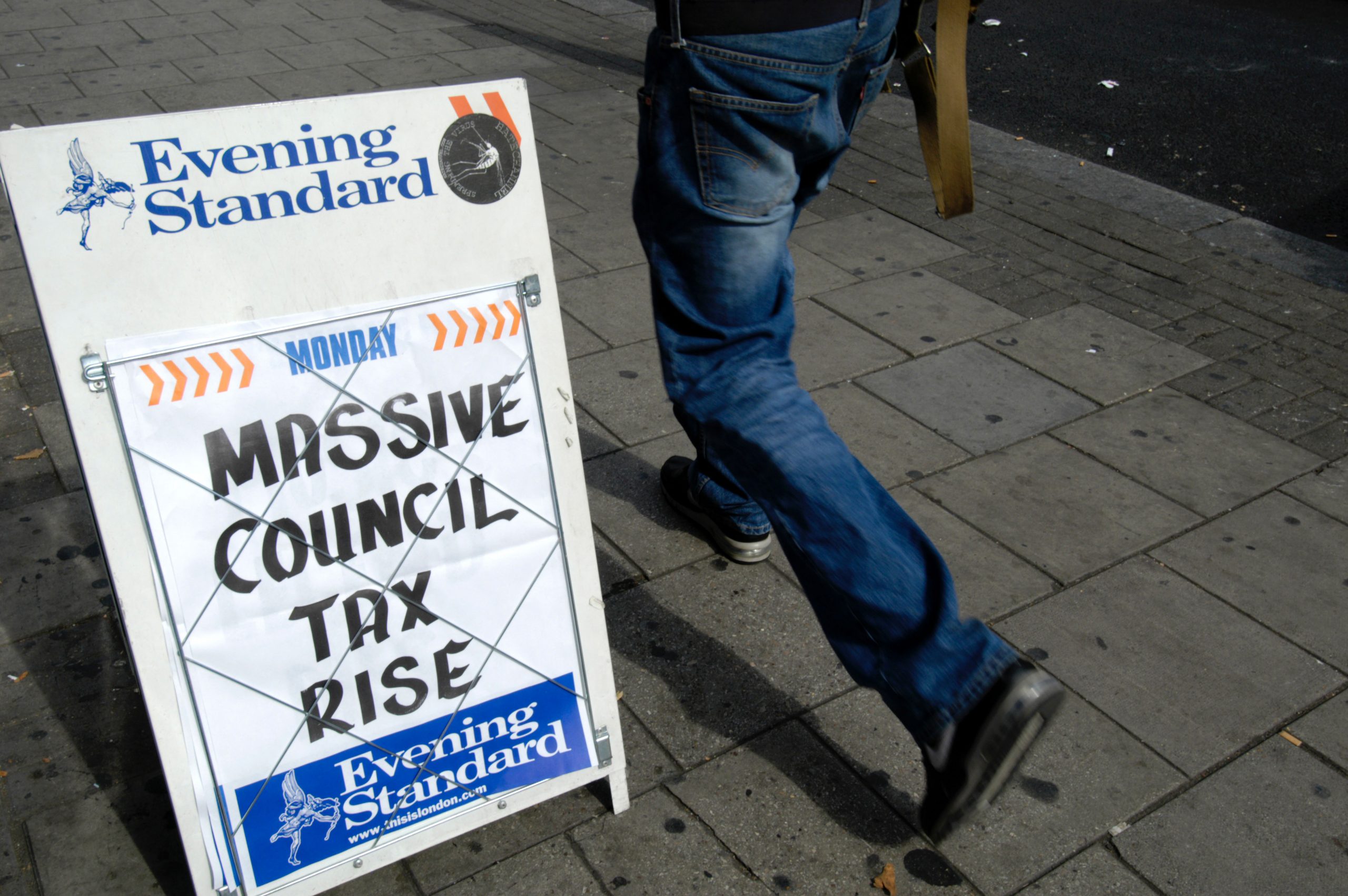How is council tax calculated - and how can you request a reduction?
We explain how council tax is calculated and whether you might be able to apply for a reduction

Sue Hayward

Understanding how council tax is calculated is crucial at a time when soaring inflation is putting increased pressure on household budgets.
Even though the Government has stepped into help by introducing the Energy Price Guarantee, plus a £150 council tax rebate for those in council tax bands A to D, millions of families remain concerned about how they will pay for household bills. This is even more important given that council tax is going up again in 2023.
Philip Stubbins, managing director at Money Expert, told us: “Council tax is something that the majority of households pay in the UK, unless exempt. Therefore it’s wise to understand how it is calculated, what services it pays for and the repercussions if it’s not paid on time.
“The country appears to be slipping into a recession, alongside issues with rising inflation and a cost of living crisis, meaning that understanding our outgoings is more important than ever. With local authorities now having more control of how much they can increase council tax by each year, households need to be aware of any upcoming price hikes and how they can manage their outgoings effectively.”
How is council tax calculated?
Knowing your council tax band is key to understanding how council tax is calculated. The amount of council tax you pay each year is based on two key elements. The first is your property’s council tax band. The second is the funding needed by your local council. If your home sits in one of the lower council tax bands, which start from A, you’ll pay a lower rate of council tax. Those in higher band properties, which go up to H in England and Scotland, and I in Wales.
When it comes to the actual amount you pay, band D is used as the benchmark for the full rate of council tax with an average annual charge of £1,966 a year for 2022-23. This is up from the 2021-22 figure of £1,898.
- For households on either side of Band D, bills are reduced on a sliding scale
- Those in band A will pay the lowest amount of council tax
- The biggest council tax bills will be paid by those in band H, or I (if you live in Wales)
You can find out how much council tax your local authority charges for each council tax band by plugging your details into this postcode checker.
Parenting advice, hot topics, best buys and family finance tips delivered straight to your inbox.
Which months do you not pay council tax?
If you pay your annual council tax across 10 instalments each year, then you won't pay council tax in February and March. You will only pay it between April and January. This two month break can be really useful post-Christmas and can help people recover from the most expensive time of the year.
However, you only get this payment break if you pay your council tax in 10 instalments (you can check your council tax bill or speak to your local council if you're not sure how you pay).
If you have a different payment plan, such as paying across 12 months instead of 10 (which can be a handy way to lower your monthly council tax bill), you will pay council tax every month and won't have a payment break in February and March.
Will my council tax go up?
Council tax bills went up for most households in April 2022 and they are expected to go up again in April 2023. Managing director of Britton and Time solicitors, Paul Britton, says: “Due to inflation, your council tax bill will always increase per year. However, the last few years have seen inflation dramatically increase compared to previous years. It is the level of increase that is concerning.”
However, while local councils have the power to raise council tax each year, maximum limits are imposed by the Government. Every year the Government publishes ‘referendum thresholds’ for council tax increases. If local authorities want to raise council tax above these levels; they’re legally obliged to hold a referendum.
In November’s Autumn Statement, Chancellor Jeremy Hunt announced that councils could raise council tax rates by up to 3% without holding a referendum. On top of this, they can also add another 2% for social care.

How can I reduce how much council tax I have to pay?
Depending on your financial situation and living circumstances, you may be eligible for a discount or exemption on your council tax. This could be between 25 and 100%, so it's definitely worth understanding what qualifies for council tax reduction and whether your circumstances mean you are eligible.
“An important discount people often forget to check is the single person discount,” says solicitor Paul Britton. “Council tax bills are based on the assumption that at least two adults live in your property. If you live on your own or with children, you can apply for a 25% reduction on your council tax bill in most areas.”
If you’re on benefits, you may be eligible for a council tax reduction on Universal Credit. In some cases this can mean your council tax bill being reduced by up to 100%. And if you’re disabled, depending on your living situation, you may be eligible to pay a lower rate of council tax. This can mean, for example, being moved from paying band D to band C.
Contact your local council to ask about council tax reduction schemes, discounts and exemptions.
If you think you’re in the wrong council tax band, you can always challenge your council tax banding.
Solicitor Paul Britton says: “Local authorities are stretched thin in terms of resources and many houses could be in the wrong council tax band. The Valuation Office Agency will only investigate if households challenge the valuations.”
Challenging your tax band can mean reduced payments going forward along with a backdated refund on any overpayment. However, do be cautious as it could be found that your property sits in a more expensive council tax band. If this is the case, you will end up paying more. So make sure you do your research beforehand.
If you have moved from one local authority's area to another and not closed your old council tax account, you may find that you are due a council tax refund.
What should I do if I can’t pay my council tax?
If you can’t pay your council tax you should speak to your local council as soon as possible. If you just need some financial breathing space, one option may be to spread payments over 12 months, rather than the standard 10 months. This is something that can be arranged with your local council at no extra cost.
Money Expert’s Philip Stubbins told us: “Missing payments when your council tax bill is due runs the risk of slipping into arrears and trigger warnings from your local authority demanding payment. Councils will send reminder notices if payments have been missed, giving you seven days to pay the monthly amount. If payment is not made within these seven days, you will have to pay the full amount of council tax required for the whole year instead. It’s essential that payments are made on time or that you speak to your council as soon as possible if you’re struggling to pay.”
Most councils also have discretionary funds that can help if you’re in serious financial difficulty and you’re receiving Universal Credit or housing benefits.
As councils have their own individual schemes, exactly how much financial help you get, will depend on where you live along with your living situation, for example if you have children living with you.
Doing nothing is the worst thing to do. Finance expert Philip Stubbins says: “If the council cannot obtain payment of council tax, residents are at risk of having financial benefits or allowances reduced so the amount can be recouped. Councils can also send bailiffs or take you to court to recover any debts.”
What does council tax pay for?
The council tax you pay goes straight to your local council to help fund local services. Miles Brook, director of tax strategy at Coin Ledger says: “Council tax enables local authorities to provide important services to their communities. Some include street lighting, bin collection, providing security, and fire rescue.” It also pays for looking after public spaces, sports centres and local libraries along with support for the elderly. Each council can decide how your council tax is spent.
When it comes to how every £1 of our council tax is spent, the bulk of our council tax goes towards social care, according to the most recent Local Government Association figures, at 57p per £1.
Around 8p in very £1 goes on public transport and also on education. 7p is spent on waste management services like recycling and bin collections. Just 5p towards local services like museums, parks and libraries.
Council tax payments make up nearly 20% of local authority income according to the Ministry of Housing, Communities & Local Government. Other sources include government grants, business rates, and council rents.
Related video: How to save money on fuel

Mum of two, Rachel is a freelance personal finance journalist who has been writing about everything from mortgages to car insurance for over a decade. Having previously worked at Shares Magazine, where she specialised in small-cap stocks, Rachel developed a passion for consumer finance and saving money when she moved to lovemoney.com. She later spent more than 8 years as an editor at price comparison site MoneySuperMarket, often acting as spokesperson. Rachel went freelance in 2020, just as the pandemic hit, and has since written for numerous websites and national newspapers, including The Mail on Sunday, The Observer, The Sun and Forbes. She is passionate about helping families become more confident with their finances, giving them the tools they need to take control of their money and make savings. In her spare time, Rachel is a keen traveller and baker.